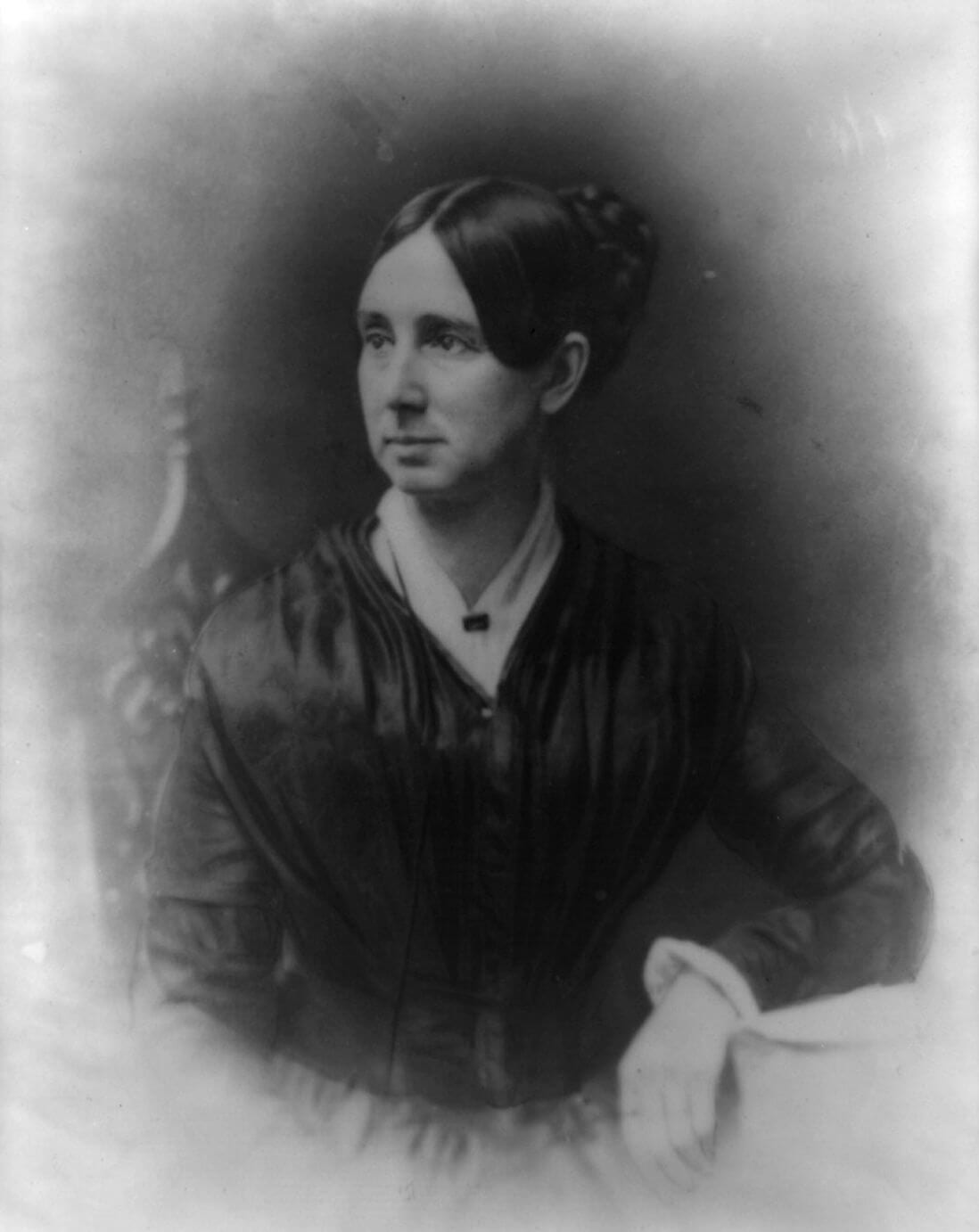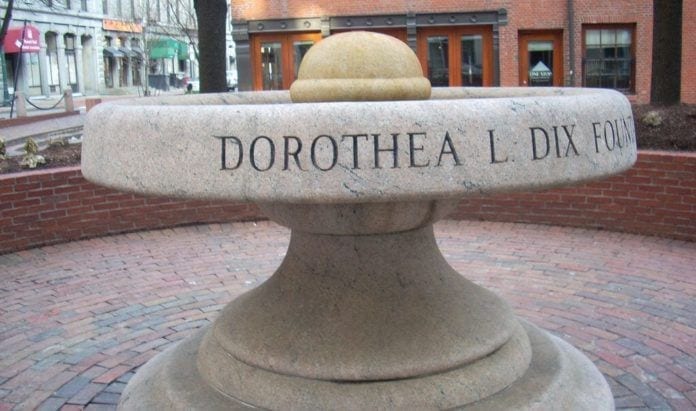Educator and activist Dorothea Lynde Dix (more commonly referred to as Dorothea Dix) was born in Hampden, Maine on April 4, 1802. Dix was the oldest of three children. Her father, Joseph, was a religious man who distributed religious tracts that his oldest daughter stitched and pasted together, which she strongly disliked.
Dix left home at 12-years-old to live with her grandmother in Boston. Soon after, she moved in with her aunt in Worcester, Massachusetts. Dix was only 14 when she began teaching. At 17, she returned to Boston, where she founded the all-girls school, Dix Mansion, and a charity school that underprivileged girls could attend for free.
[bibblio style=”bib–row-3 bib–hover bib–white-label bib–font-arial bib–default bib–size-16 bib–shine” query_string_params=”eyJ1dG1fc291cmNlIjoiQmliYmxpbyIsInV0bV9tZWRpdW0iOiJNb2R1bGUiLCJ1dG1fY2FtcGFpZ24iOiJSZWNvbW1lbmRhdGlvbnMifQ==” recommendation_type=”optimised”]
Early Life
Throughout her early professional career, Dorothea Dix was devoted to providing girls of all ages with a quality education, and she even began writing academic textbooks. Her most popular textbook, Conversations on Common Things, was published in 1824 when she was just 22.
 Dix’s teaching career continued throughout her adult life, and in 1841, she began teaching Sunday school at the East Cambridge Jail, a women’s prison in Massachusetts. While teaching at the prison, she learned about the inmates’ terrible living conditions, where inmates’ living quarters had no heat. To resolve the prison’s issues, Dix did not hesitate to go to court, where she helped solve many of the inmate’s problems.
Dix’s teaching career continued throughout her adult life, and in 1841, she began teaching Sunday school at the East Cambridge Jail, a women’s prison in Massachusetts. While teaching at the prison, she learned about the inmates’ terrible living conditions, where inmates’ living quarters had no heat. To resolve the prison’s issues, Dix did not hesitate to go to court, where she helped solve many of the inmate’s problems.
This event at East Cambridge Jail sparked an interest in Dix, and she soon began traveling around Massachusetts to research the conditions of other prisons and publicly funded institutions for the underprivileged. She initiated several positive reforms in Massachusetts before touring the country. Subsequently, she affected the lives of the poor and mentally ill in institutions in nearly 15 other states, including New Jersey.
Civil War
Dix continued to lobby for the welfare of the poor and mentally ill for many years. In 1861, when the Civil War broke out, Dix volunteered to lend a hand. Before long, she took on the role of Superintendent of Army Nurses in the Union Army. She managed supplies, set up field hospitals and first-aid stations, recruited nurses and led training programs.
In the early 1870s, after the war, Dorothea Dix’s lobbying for a second New Jersey psychiatric hospital paid off. This could alleviate overcrowding at the state’s only other facility in Trenton. Soon after, the New Jersey State Hospital, Morris Plains (now known as the Greystone Park Psychiatric Hospital) came to be. In 1881, Dix moved into her own private suite in the hospital; on July 17, 1881, she died there at the age of 85.
Hero (Top) Feature Image: © EraserGirl / Wikimedia Commons
Additional Images (in Order) Courtesy:
Library of Congress / Public Domain (via Wikimedia Commons)











